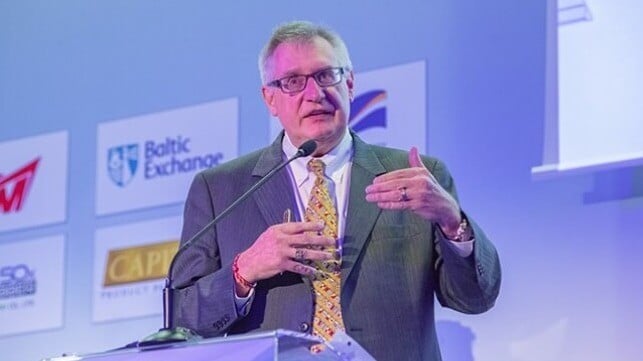Wiernicki: Carbon Capture Will be Key to Shipping's Green Transition

In a keynote address at the Posidonia conference, ABS chief Christopher J. Wiernicki made a bold announcement: the class society believes that "net zero cannot realistically be delivered without efficient carbon capture and storage technology" for ships.
Onboard carbon capture and storage (OCCS) is a technology in the early stages of commercial development. Typically deployed in combination with a scrubber, an OCCS system captures a percentage of the CO2 from the exhaust stream and stores it on board. The percentage captured has to be balanced with the commercially-acceptable volume and weight of onboard CO2 storage capacity, subject to the vessel's characteristics and trading patterns.
"Carbon capture is going to be a key transformational technology for shipping to achieve net zero emissions by 2050. It will be critical to addressing the challenge before us, which is the sheer gradient of the curve," said Wiernicki. "In order to get to net zero by 2050 we will need 10 times more renewable energy than we have in place today and extensive carbon capture capabilities."
OCCS is already deployed in limited commercial operation by container feeder line JR Shipping, in combination with technology provider Value Maritime. Scorpio Tankers is working on a similar solution with American startup Carbon Ridge, with plans to install a small-scale test unit on one of Scorpio's vessels.
In a simultaneous announcement Friday, ABS said that it is developing comparable technology for an LNG carrier with DSME and GasLog. The three companies will develop an onboard CO2 capture and storage system (OCCS) to return CO2 from the exhaust gas back to the ship for storage. The stored CO2 can then be offloaded to shoreside facilities after entering port.
The three companies will design an OCCS for an LNG carrier, which will be built by DSME. Development work is expected to be completed by the first quarter of 2023. ABS will set up rules and regulations for OCCS development, provide technical advice, and conduct risk assessments and supervise testing leading up to approval in principle (AIP).
DSME holds an order from GasLog for four new LNG carriers, which will begin delivery in the first half of 2024. The first installation of the new joint OCCS system is to coincide with construction.
